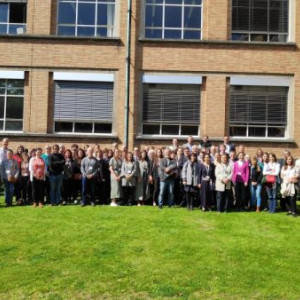 \
&
Contact us
\
&
Contact us
 \
&
Contact us
\
&
Contact us
Published on | 1 month ago
Programmes MSCA Horizon EuropeThe EU-funded SAFE project “Supporting At-risk researchers with Fellowships in Europe” offers up to 60 fellowships for at-risk doctoral and postdoctoral researchers of any non-EU nationality for a research stay at a higher education and research institution in the EU for a minimum of 12 months up to 24 months.
For the selection process they are in search of international experts to evaluate applications in the period mid-February until mid-March 2025 (expected), based on the project’s evaluation criteria. They are specifically in search of:
Further details about the requirements and responsibilities of reviewers can be found in the Terms of Reference for External Reviewers which can be found on the webpage of the call for external reviewers. The Terms of Reference for Applicants for the Fellowships can be found on the webpage for online application.
Interested experts can submit their expression of interest via this link until 31 January 2025.
We offer news and event updates, covering all domains and topics of Horizon Europe, Digital Europe & EDF (and occasionally, for ongoing projects, Horizon 2020).
Stay informed about what matters to you.
By signing up, you can opt in for e-mail notifications and get access to
a personalised dashboard that groups all news updates and event announcements in your domain(s).
Only for stakeholders located in Flanders
Culture and society Agro-Food, Environment Missions
The TIDAL ArtS project is funded under the Mission for clean oceans and inland waters and combines the power of art and science to inspire action for our ocean and waters. In april they will publish a Lighthouse call for proposals of up to 15.000 euro per artistic work. The aim of the project is notably to create public art and raise awareness on... read more

The Project SeafoodTomorrow is a project that is approved within the call BG-08-2017: Innovative sustainable solutions for improving the safety and dietary properties of seafood.
The three-year SeafoodTomorrow project brings together 34 partners. From Flanders, ILVO takes part in the project.They are responsible for setting up two databases which are the central point of the project to gather all the project data from analysis and assessement. ILVO is also leader of the workpackage dealing with authenticity, traceability and labelling. ILVO is also involved a the workpackage about novel food preparation. And in the managerial part, ILVO is head of the IPC- Intellectual Property Comité.